Carrot fly infestations: How to prevent them
Why are my carrots covered in brown spots, and what has been burrowing in them? The carrot fly maggots can cause a lot of problems. This is how you prevent future infestations.
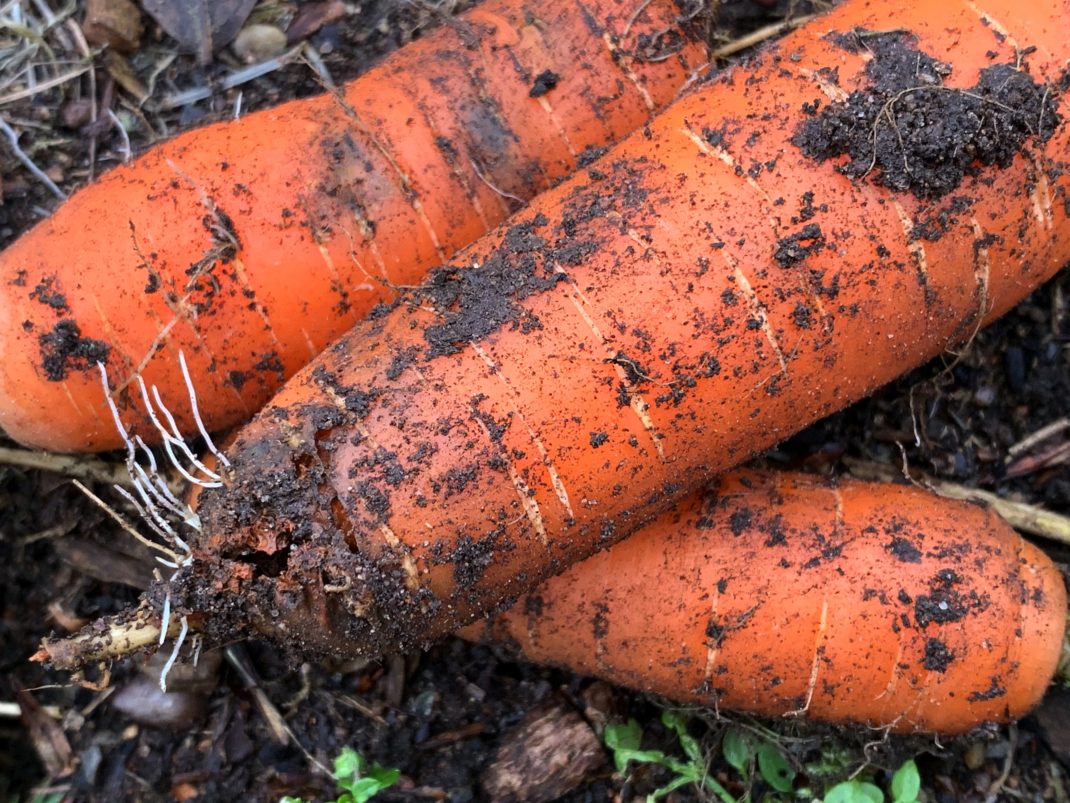
This carrot is in a bad state. Carrot fly maggots have eaten their way through the carrot and some parts are rotten.
Some of you who grow carrots at home will get a nasty surprise when you pull them from the ground. The carrots are crawling with maggots! What are they and what can you do to prevent this from happening again?
Read more about carrots: My winter-sown baby carrots
Carrot fly
The carrot is the host plant for the little carrot fly and their larvae. The fly is small, around 0.15 inches (4 mm) long with a dark body, a yellow head, and see-through yellow wings. It lays its eggs in the soil, right next to the carrots. These eggs develop into little larvae that sooner or later burrow into the carrots. They live inside the carrots until it's time to crawl out and pupate. But what about the carrots then? Well, they don't do very well during this process.
The infestation looks like little dark spots, often located in the same area. If the infestation is serious, the entire root gets perforated. When this happens, the carrot is often more susceptible to other infestations and similar. Severely damaged carrots can rot quite quickly.
In my experience, it's almost impossible to grow carrots without any infestations. Most of us who grow carrots have some issues, but it doesn't necessarily mean that the entire harvest is ruined. It's usually just a few roots here and there.
Carrot flies can lay their eggs next to parsnips, parsley and other vegetables in the same family too.
More about carrots: When should I start harvesting carrots
Can you eat damaged roots?
You can actually use some of the carrots, even if they were affected by the carrot fly. Carrots are probably one of the most important vegetables in my garden, and it takes a lot before I decide to get rid of them.
I usually sort my carrots when I harvest them, based on if they are visibly damaged or not. We eat the damaged carrots (that are not too bad of course) at once, or cut the bad parts and then we make pickled carrots (or freeze them for that matter.) I never store previously infested carrots long-term though.
The flavor is thankfully not affected by the carrot fly infestation. It's more of an aesthetic issue after all.
More about carrots on YouTube: How to grow carrots in a carton
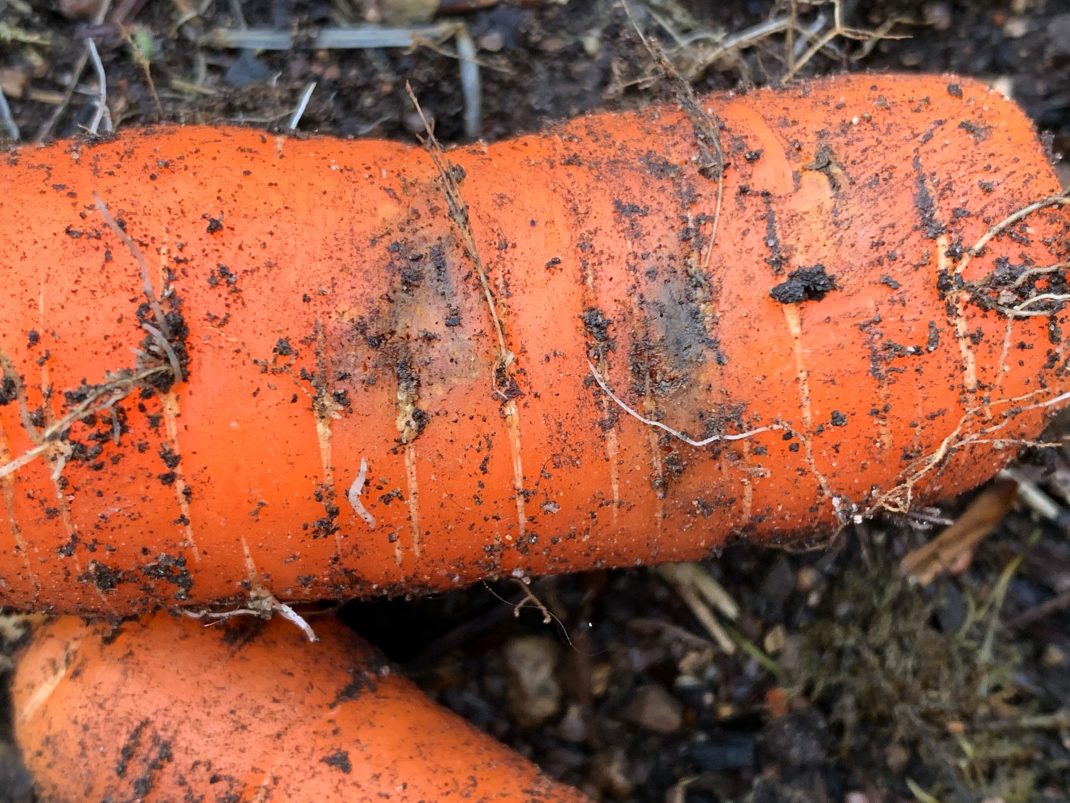
If you look closely, you can see the brown little spots in the middle. A little maggot is visible too. This is the culprit. Don't confuse it with the white roots though.
Prevent carrot fly infestations
So, is there anything you can do to protect your precious carrots from carrot fly infestations? Absolutely! It's not even that difficult. The most important step is to keep rotating the crops. Don't sow carrots in a spot where you had an infestation a year or two ago. The carrot fly maggots pupate and can stay in the soil until next year. Don't give the new flies a second meal, switch the location instead. Carrot flies aren't very good at flying, so they will probably not be able to get to a spot further away.
Other methods:
- Sow many times, during most of the year.
- Don't put your carrots too close together. If you do, you need to thin out the rows and the smell of carrots will attract new flies.
- Grow carrots in several spots. If you grow them all in the same space, the infestation might spread more easily.
- Put row cover on top of the carrots already from the beginning, this will prevent the carrot flies from laying eggs here.
- Grow carrots in raised beds.
Some people grow onions together with the carrots. The smell of onions is apparently supposed to discourage the carrot flies. I tried it but didn't get any results at all. I recently found an article about different ways to combat these infestations, and the verdict seems to be that onions actually don't have any effect at all. Mulching doesn't seem to help either. One thing that seemingly does help though is to be generous with the watering right when the flies lay their eggs (you can see them if you look closely.) This will drown the eggs.
More about carrots: Harvesting summer carrots in fall
Summary
If you keep getting carrot fly infestations in your garden, this might just be the best surefire ways to prevent it from happening again:
- grow the carrots in deep troughs
- using new, store-bought soil
- in a raised spot
- add row cover on top
Last but not least, be patient!
Good luck!
/Sara Bäckmo
15. November 2019
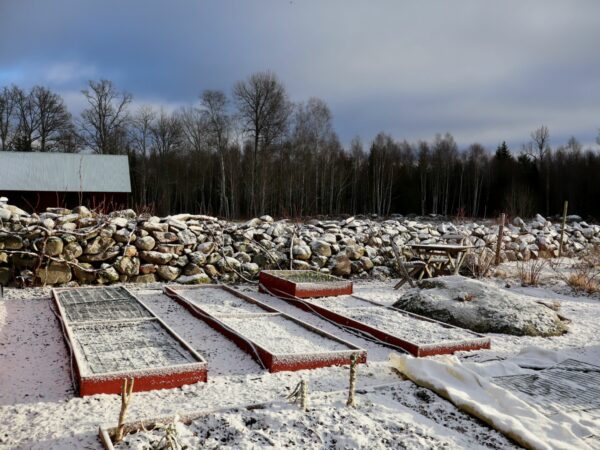
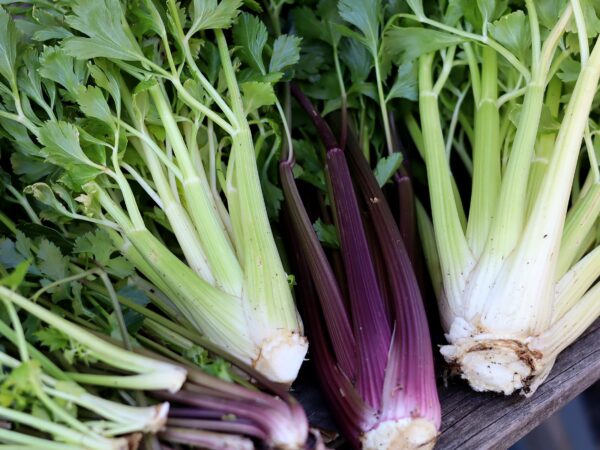
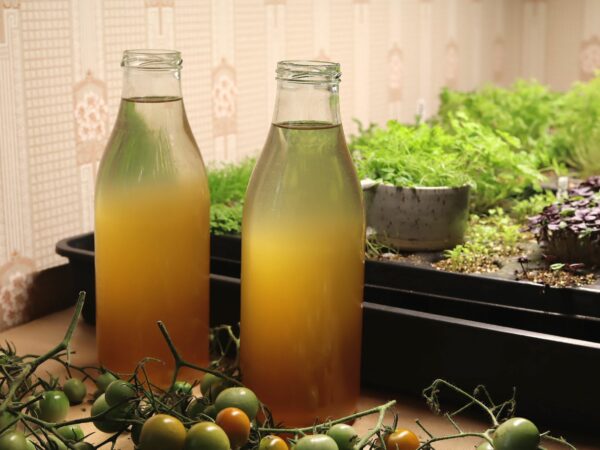
Leave a Reply
You must be logged in to post a comment.